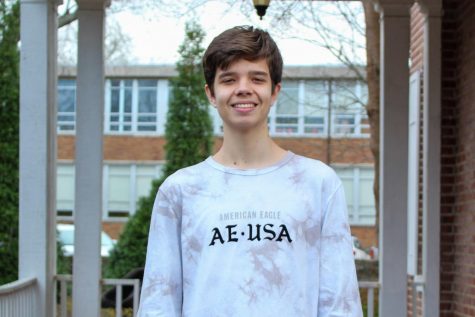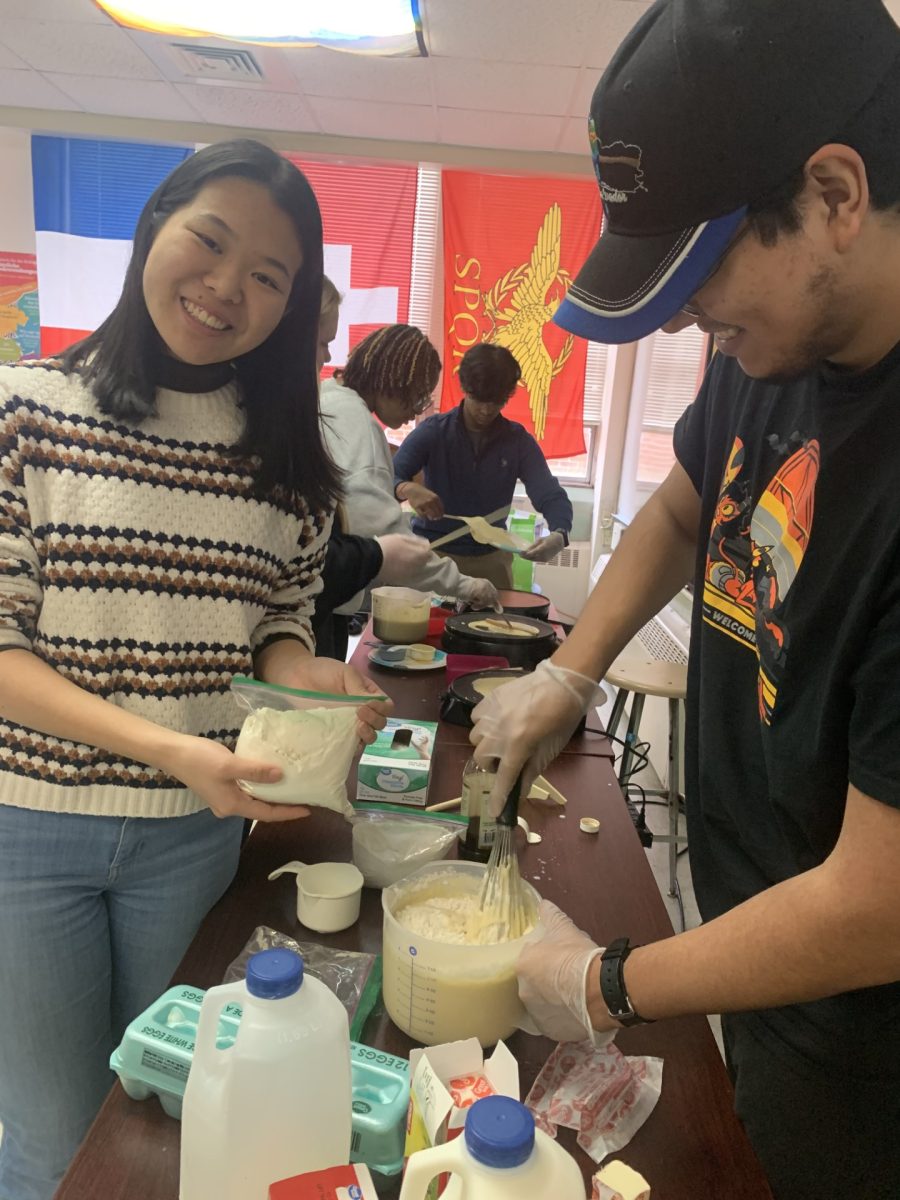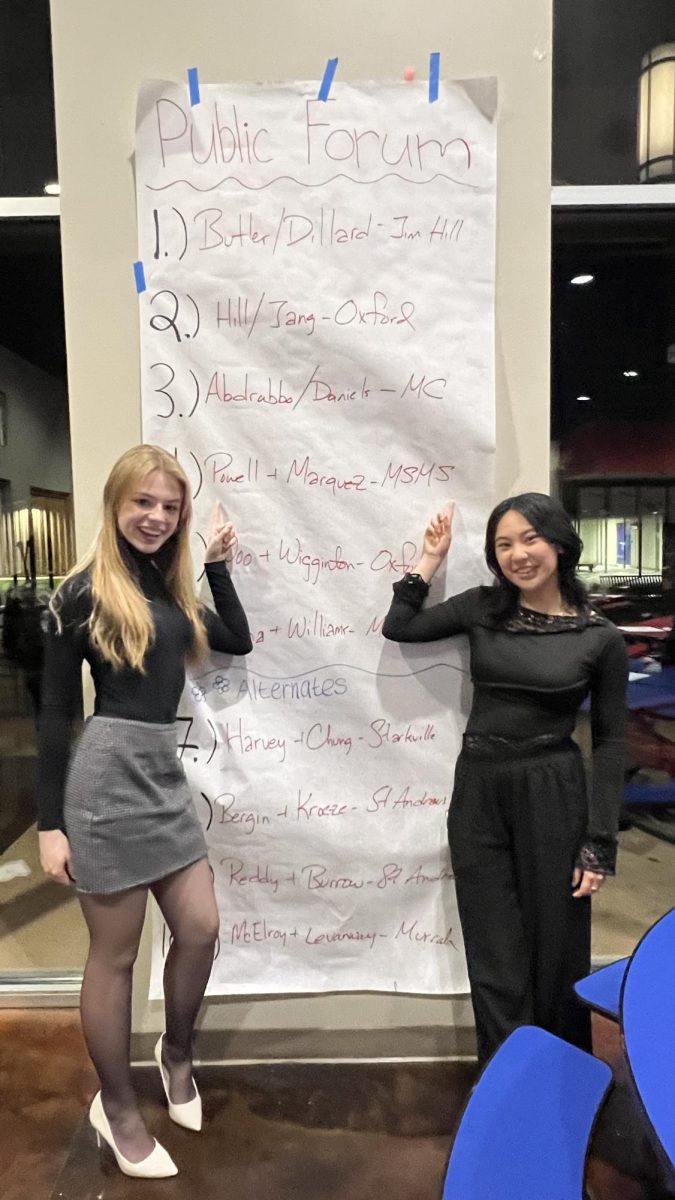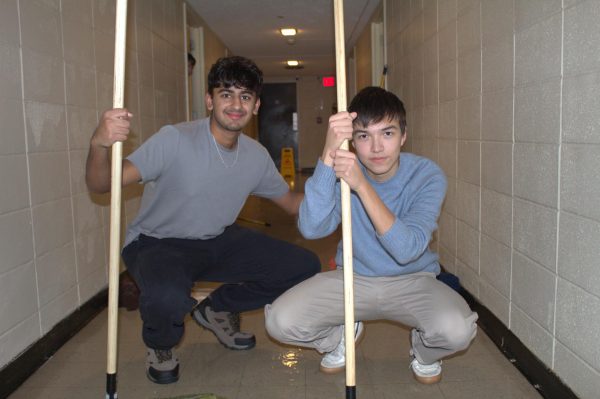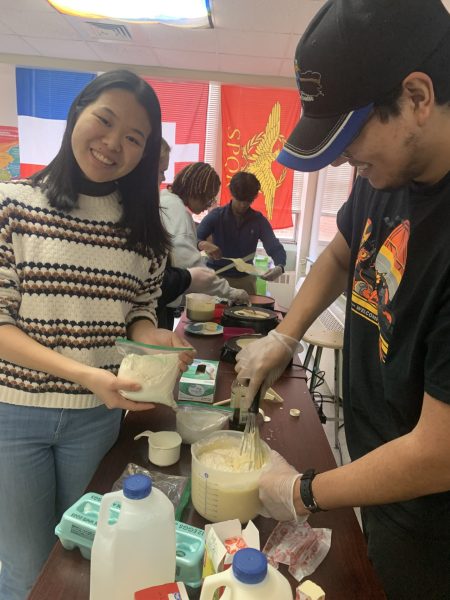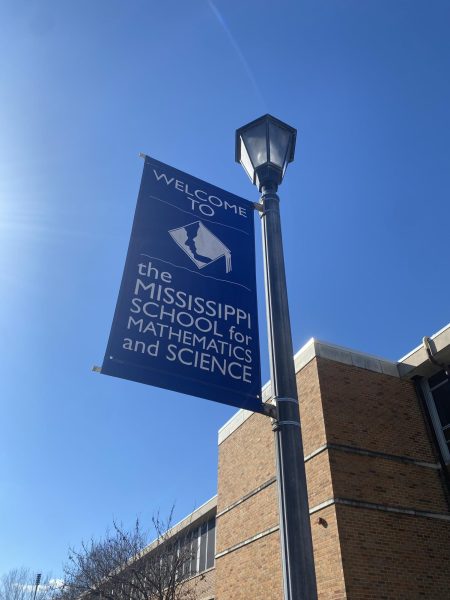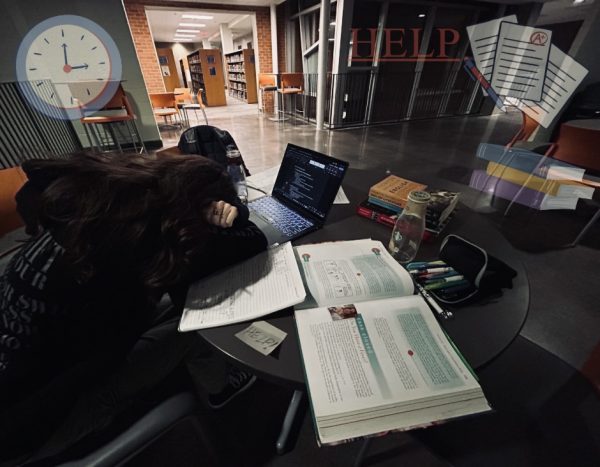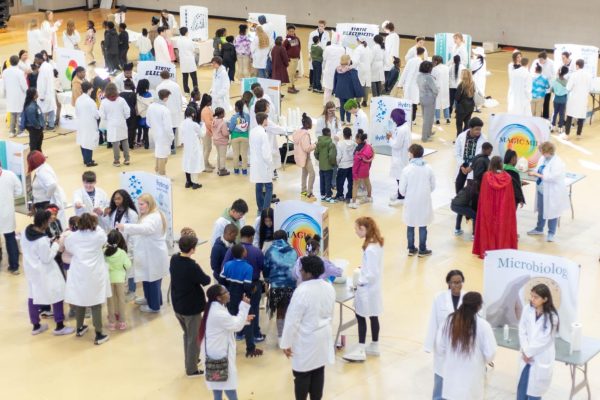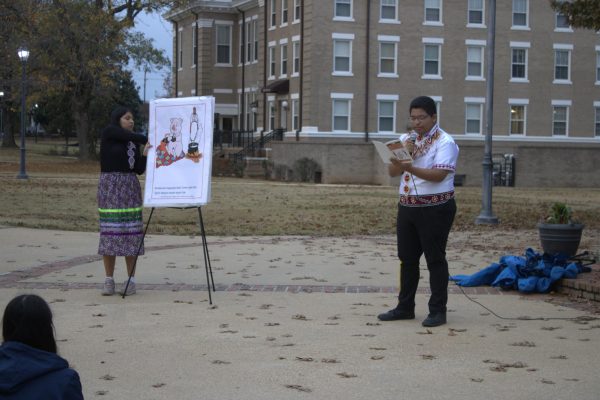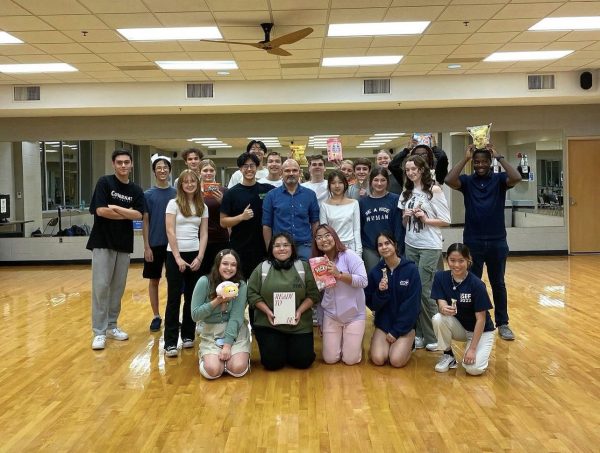MSMS senior reminds the world COVID-19 still exists
Senior Chandler Bryant (center) contracted COVID-19 but did not experience severe physical effects.
October 26, 2020
Despite dwindling media attention and an overall downplayed attitude surrounding it, COVID-19 still exists and continues to affect the world today. People that possess underlying health conditions, as well as the elderly, are at high-risk for the novel coronavirus, but how has the pandemic been affecting the world’s youth, specifically Gen Z? Youth brings with it the gift of accelerated immune systems and fast responding antibodies. Despite this, COVID-19 has been reported to cause long-term effects even for people as healthy as teenagers.
MSMS senior Chandler Bryant was diagnosed with COVID-19 in late August, near the beginning of the school year. While the cause of his exposure is not clear, Bryant’s precautions against the coronavirus were not enough for him to avoid contracting the deadly disease.
“When my mom told me I got COVID-19 I was really surprised,” said Bryant. “I was sick but I wasn’t really sure that I had it, I was just telling myself that I probably had a cold or something…so my first reaction was also fear because I realized that I was going to spend the next 14 days in quarantine.”
“I don’t think I was ever really afraid that I was gonna die or have life long impacts,” Bryant said.
Teenagers without underlying health conditions are considered the least vulnerable and least likely to have a hard time dealing with a positive COVID-19 test. While he may have not been worried for himself, Bryant’s anxiety towards the thought of spreading it to his family is another story.
“My main fear was giving it to my family or like other people who have compromised immune systems because I wasn’t worried about myself. I’m 17 and I don’t have any health issues, so my biggest fear was if I had accidentally given it to one of my family members.”
Fear and concern for loved ones, especially during a deadly pandemic, are emotions that can feel overwhelming for somebody as dependent on their parents as a teenager is, but how do teenagers, who are the safest in terms of contracting COVID-19, themselves deal with the virus mentally and physically? Bryant’s quarantine experience was less than desirable.
“The first few days were really not that bad,” Bryant said. “I was getting used to not having to go out and do stuff and really deal with any of the normal things of life. And then around the seventh day, I started getting a feeling I was going crazy. I didn’t know what time of day it was because my room has one window. I would literally have to go outside by myself just to come back to reality and realize what day it was.”
Despite the mental strain quarantine for COVID-19 positive patients can be, Bryant’s physical health proved to be resilient throughout his diagnosis.
“I had strep throat once and COVID-19 was way better than that,” Bryant said. “Really, the only bad thing about it was not being able to smell or taste because I had completely lost my appetite. I wasn’t able to enjoy food for 10 days, but it wasn’t that bad, like physically.”
Like many teens around the world, Bryant also didn’t fully believe the chance of contracting COVID-19 would come to fruition.
“This sounds bad, but I didn’t think I would get it,” Bryant said. “I didn’t realize the gravity of it until I actually got it myself. And so I was aware that it was real.”
COVID-19 is still a real presence even after months of its first appearance. While the death toll continues to increase, the media pays less attention to the virus and people eventually lose interest in staying safe.
“COVID-19 is really dangerous and even if you think you can’t get it, you definitely can,” Bryant said. “So it’s best just to be as careful as possible.”


